#like it took me about 10 years to realise that i was being actively excluded from a group of girls
Explore tagged Tumblr posts
Text
when the realisation ✨finally✨ dawns on you but it’s wayyyy too late
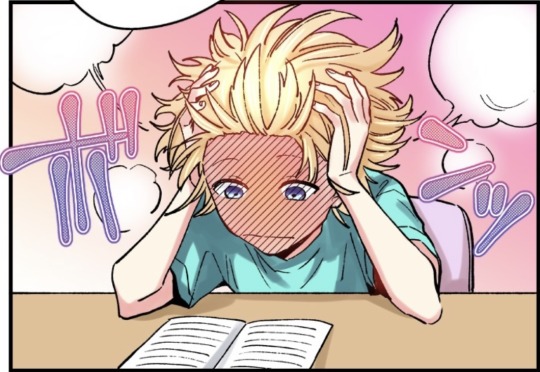
#so. to preface. i’m an idiot who often misses the point and stuff.#like it took me about 10 years to realise that i was being actively excluded from a group of girls#in which they went out of their ways to talk about all kinds of fun tall tales that all of them but me were involved in#(but i completely missed that they were trying to exclude me bc i was more interested in listening to their stories lmfaooo)#but anyways! a few weeks back my brother’s gf mentioned in passing that my bro told her that i went on the trip to look for bl manga#at first i was like ‘hahaha yeahhh i kinda read ‘em sometimes but not all the time yk’ but then i just realised that…#…he must’ve assumed that i was buying bl manga back when i bought vol 4 of idol sengen. fml#tbf!!!! there was a huge display of bl manga in the girls manga section of the store my family followed me into#so i guess i can see how he thought that i was buying bl manga? esp since i refused to let my fam see the cover of the book i bought?#but still… man. most of the bl manga on display there had v e r y spicy covers… lord knows which one he assumed i had bought…#there’s no way in heck i’m gonna correct him thought. nope. i don’t need him to go poking around in this fandom too#i’d d i e fr if he found this blog. so ig letting him continue with his assumptions is the lesser of two evils…#anyways. um. how was your wednesday~~~~?#it is suiyoubi my dudes
8 notes
·
View notes
Text
IT HAPPENED
Tuesday March 5th 2019

ONE HUNDRED AND ELEVEN THOUSAND, ONE HUNDRED AND ELEVEN TOTAL KUDOS ON ALL MY DESTIEL FICS COMBINED!! DESTIEL SHIPPERS, MAKE A WISH !!!!

Total kudos: 111,111
Total author subscriptions: 2,239
Total comment threads: 7,233
Total word count: 2,466,231
Total published fics: 96
Average kudos per work: 1,157.4
Average comment threads per work: 75.3
Average number of fics published per year (November 2012 to February 2019, excluding 4 fics from those incomplete years): just over 15
Work with highest number of kudos: Try-Something Tuesday (4451 kudos)
Works under 10k with the best hits-to-kudos ratio: Note to Self: Cas Loves You (5.1 clicks = 1 kudo) & Dry in the Downpour (5.6 clicks = 1 kudo)
Work 10-20k with the best hits-to-kudos ratio: Paramour by Post (7.7 clicks = 1 kudo)
Work 20-30k with the best hits-to-kudos ratio: Stumble and Fall (6.6 clicks = 1 kudo)
Work 30-40k with the best hits-to-kudos ratio: First and Only (7.9 clicks = 1 kudo)
Work 40k+ with the best hits-to-kudos ratio: Duck Duck Boots (10.2 clicks = 1 kudo - incidentally, this is the fic that got the 111111th kudo!!)
Longest fic: Angelhawke (407,057 words)
Shortest fic: What's a Hickey? (1,101 words)
Average fic length: 25,690 words
The fic that started it all: Angelhawke
The fic that changed everything forever: Try-Something Tuesday
The fic that makes me cry every time, still: Nine Times We Met (And One Christmas We Parted)
The fic I’m least happy with, but don’t want to change because I want to preserve the testament to my own character development: Foxfire Blossom
The fics I’ve re-read the most and enjoy every time: Welcome All Winchesters / Snow Place Like Home (But My Home Is With You)
The fic I show to non-fandom people to explain what I do: A Postcard for Castiel
The fic I’m proudest of: Roost (also wins the prize for most common comment: “Why am I crying because of chickens???)
The fics that all feel just right: Drop Anchor / Sharing the Rain Dog / Take You To The Country / Sexier Than Doctor Sexy (but I’m struggling not to add 40 others)
The fic that I didn’t expect people to like so much: Dean's List
The fics I honestly expected people to like more: Marshmalloween / Something Icky This Way Comes (I guess soft Halloween spoop isn’t that big around here??)
The fics most personal to me: Our Garden Home (an accidental parallel for my life over the last few years) / Of Shampoo and Fruit Flies (the fic that made me realise I was autistic)
The fic that took me the most drafts to perfect: What We Ache For (in fact this is one of only two fics where I deleted huge chunks and re-wrote, the other is Welcome All Winchesters)
The fics I think people would really enjoy if they set aside assumptions and expectations, and/or keep reading past the opening chapter: The Emporium of Christmas Enchantments / The Wireless / The Moonlighter and the Magician / Tickle Fight Wasteland / Marshmalloween
The fics that have a good vibe I’m always trying to be inspired by: Father Material / Try-Something Tuesday / Welcome All Winchesters
The short fics I’d rec right now to someone who’s never read any of my fics: Symbols of Affection / Never or Forever / Note to Self: Cas Loves You / Dry in the Downpour
Things I would say to people who leave kudos: YOU ARE THE GORGEOUS SHINING STARS IN THE SPARKLY SKY OF MY LIFE. THANK YOU FOR YOUR SUPPORT. I hope I can always make things you feel compelled to enjoy, and that transport you to some other magical world for a little while c:
Things I would say to other writers or artists:
Celebrate yourself, your achievements - no matter how utterly trivial - and celebrate the love that people give you, even if it’s just one comment.
Share positive feedback with others - because the people who gave you that love enjoy seeing it appreciated, and people who want to enjoy something new like choosing things other people liked first.
Anyone who complains about your confidence is speaking from a place of insecurity.
If it makes you feel bad seeing others being successful, instead of comparing yourself and seeing yourself as lesser, smack that feeling in the nose and actively raise yourself up instead of putting yourself down - even if it feel like a lie at first. You have already done great things, and you will do better things in times to come. Someone else’s success doesn’t mean you can’t have your own.
I promise you, others will see how brightly you shine once you see it and celebrate it first. (Honestly, you don’t even need to see it. Just assume your work is decent. Because there’s someone out there who thinks your creation is perfect, but will never even look at it if you think it’s trash.)
When I am scared of being unapologetically confident, I like to pretend I’m doing a job interview for the world, or filling in my resume. i.e. I AM good at this, THESE are my skills, and if you enjoy THIS, I can give you THIS, because I have learned about THIS. And so on. There’s never any need for mumbling “I guess I’m okay at this” or “this isn’t that good”. Always say THIS THING I MADE IS WHAT YOU NEED, even if it’s not really. If what you make is not what someone wants, they can scroll past, and it’s fine. You’ll find your audience by offering your work to everyone, and finding someone who believes it was made just for them.
I love you.
Things you should know about me: I am a chronically ill/disabled person, and I write and illustrate Destiel fics with every available bit of time and energy I have, with the goal of bringing joy and comfort to people like me. I am surviving only via government payments and my entire family’s unpaid 24/7 care. (I am currently on the maximum disability allowance.)
Things you can do to support me beyond kudos and comments: Click this link!!
My 111111 kudo wish: I wish that my health improves soon so I can write lots and lots of high-quality, beautiful things, and you can all enjoy them ♥ and so my mother doesn’t have to feed me 12 times a day ‘cause jskfj she hates cooking.
Thank you to all my readers. One hundred and eleven thousand, one hundred and eleven times, thank you. Thanks to Misha and Jensen for having chemistry™. (And thank you AO3 for even having a kudo button!! And existing at all.)
Elmie x
#Destiel#Destiel fic rec#Elmie writes things#Elmie makes things#Destiel fanfic#not my gif#milestones#ao3#kudos#post of postiness#i may have not slept any more than 20 minutes today just so i could sit at the laptop hitting refresh so i didn't miss this#just maybe
77 notes
·
View notes
Text
20 Questions#1: Emma
Q: stands for “questioner” or “interviewer” a number in brackets will indicate when Q has moved onto the next question
E: stands for Emma Rochette who is a fictional character I have created in my mind. She is the “interviewee”.
I met Emma standing in her kitchen in her lingerie waiting for a husband who, again, wasn’t going to come home that night. Perhaps I will publish that first encounter on here. A few nights ago she popped into my mind. The unsuspecting lonely housewife who is about to get caught up in a series of life threatening and truly exciting events that will bring meaning to her shallow, attention starved existence. For now though, this is how we find her.
Q: Hello Emma, I’m going to ask you a few questions about yourself. This is a safe space where you can speak honestly. Try to answer as truthfully as you can, and give as many details as you can. Are you ready to start
E: Yes
Q: (1) Okay, where are you from?
E: Enfield, in London.
Q: Did you like growing up there?
E: I guess I can’t complain.
Q: You absolutely can complain if you would like to. Nothing leaves the room
E: Well then, it was a bit... I don’t know, boring. I felt very... lonely?
Q: Is that a question or a statement?
E: ... It’s a statement. I was lonely.
Q: (2) Can you tell me a bit more about your family? Who were the main figures in your home?
E: I mostly lived with my mum and my step-dad, I saw dad sometimes, on the weekends.
Q: And no siblings?
E: Oh yeah, of course, I had a younger brother, Max
Q: Did you get on with him?
E: As much as any siblings do. We were pretty competitive, I guess.
Q: And what were you competing for?
E: Attention
Q: From your mother?
E: Sort of, mostly from our dad, I think. Obviously he liked Max more because he’s a boy. I tried to be more like a boy when I was younger, but I wasn’t very good at it.
Q: And how about your stepdad, how did he treat you?
E: He was kind. He’s a good guy. He treats my mum really well. I suppose I never exactly thought of him as a dad when we were growing up, but looking back on it I would say he did more fathering then, you know, my actual father.
Q: That’s very interesting. And he’s still with your mother?
E: Yes
Q: How is your relationship with your mother?
E: It’s a bit difficult.
Q: Can you expand on that?
E: Yeah, it’s that... well I think she wanted different things for me. She wanted me to be more like her. I think. And I’m just not like that
Q: Continue
E: What I mean to say is... She’s pretty much perfect, or at least, I think deep down that’s how she sees herself. Walking away from her marriage sort of empowered her. And I felt like I could never make her proud, since she had the bar so high
Q: She expected too much from you?
E: Yeah. She wanted me to be this strong independent woman. She wanted me to subscribe to her twisted beliefs about how all men are trash unless you get them to bow to your every need and support all your opinions
Q: Do you feel like she mistreated the men in her life?
E: I guess, yeah. Well, not in a way that she showed. More something she thought inside her own head. She just thought she was better than them. She wanted us to be this mother daughter power team and it just felt too... excluding?
Q: (3) Okay, let’s move onto your friends. Did you have many friends in school?
E: Yeah, I always had a little group of friends. I wouldn’t say I was super popular, but I definitely wasn’t unpopular. I got invited to plenty of things, you know?
Q: Was this group consistent or was it always changing?
E: It changed quite a lot. We were sort of in the middle ground, like a said, so people rose and fell through us, if you get what I mean
Q: Did you ever rise or fall?
E: both, yeah. I got in with some of the more popular girls and then went to some parties and embarrassed myself. Normal teenage stuff, you know? But it taught me who my real friends were
Q: And who were they?
E: This girl named Megan, and another girl named Trisha. I still talk to Trish. She’s my best friend
Q: Lovely, and how did you get to know Trish?
E: We were co-captains of the Netball team
Q: It was an all girl’s school, is that right?
E: Yes
Q: And what did you think about that?
E: I thought it was stupid, and the religion was outdated, but I had a good time there. It was a good school, but you know, it was a bit unbalanced. And I don’t think it helped me understand boys at all.
Q: (4) So did you grow up with a lot of money?
E: My dad made a lot of money, and that’s how I got to go to that school... but at my mum’s house we didn’t really have much. We didn’t have many consoles or things like that.
Q: How did that make you feel?
E: Honestly a bit left out. All my friends had that sort of thing
Q: And your father didn’t buy that for you?
E: My mum didn’t let him. Or at least, she told him not too. And he mostly respected that... unless we really bugged him about it. But it was rare for us to agree enough to team up and do that
Q: Do you have more money now?
E: Yes. It’s something I insisted on when I got married. I think you need a certain amount to live comfortably, my mum and stepdad were always stressed about money, you know? I don’t want to live like that. Of course there needs to be love in a marriage too but... financial security is more important than people care to admit, and I feel like that does those people a disservice.
Q: (5) Let’s move onto something a bit more fun now. When you were a child, what was your passion?
E: My passion?
Q: Yeah, what occupied your mind? What would you spend hours doing or dreaming about?
E: I don’t really know... I don’t think I can remember. I mean, it’s been 30 years since I was a child and it’s not something I really thing about
Q: You can take a moment to think about it now
E: Okay...
E: Yeah, there isn’t really one thing in particular. I had a lot of phases... I liked science for a while but then we started studying it in school. And I liked horses for a while, I liked dancing, I liked archery but... mostly I wasn’t very interested in doing anything for a long time. I just wanted to do whatever my friends were doing. And often we couldn’t really afford that, or my mother didn’t approve or my father didn’t or... you know. I didn’t have any natural talents or anything. So it was all just recreation and I found it more fun just to hang out than to go do an activity.
Q: But later you discovered your calling is that right?
E: Yeah, I started taking the art classes in school, and I really loved it.
Q: Studying science took your love of science away, why didn’t studying art do the same?
E: I don’t know. I suppose I just had a really great art teacher. her passion was sort of... infectious? And I felt like she really understood me.
Q: (7) Would you say she was a major role model for you?
E: Yeah, she was really great. I wonder what happened to her now actually
Q: (8) What would you say is a major lesson she taught you?
E: Oh, um... It’s okay to flirt? I know that sounds silly haha
Q: Not at all, please elaborate
E: I mean, she flirted with everything. Other teachers, students and so on, but also the canvas, the paint brushes, the air around her...
Q: Interesting...
E: yeah
Q: Do you feel like she taught you that it was okay to be open and playful?
E: Yeah, she taught me it was okay to be... myself? Kind of?
Q: It’s okay to be sexual
E: Yeah, cause everything was so... Catholic. And then there was this wonderful woman. And she seemed to be the only person who was making any sense.
Q: (6) and how about your other classes? What sort of student were you?
E: Mediocre? I tried enough to keep up, but not any more than that. I was always quite bad a maths, but I worked on it to pass my exams
Q: Would you say you were focused?
E: More than I let on... I cared about not being seen as stupid by my friends, but I did a lot outside of school. Like I went to parties at the weekend to meet boys and things
Q: Tell me about your adventures in that area?
E: Oh, I don’t really know what to say about that
Q: (9) Did you have many romantic experiences when you were younger?
E: I guess, since I was in a school full of girls, and I’m very much straight, it took me a while to actually meet anyone. So I was in sixth form when I got my first boyfriend. Before that I kissed some people at parties.
Q: Did you lose your virginity with him
E: Haha, no, that would have been the sensible thing to do. I wasn’t so... picky? When I was younger and it meant I ended up not having the best experience.
Q: I sense you regret that
E: Yeah, I do. But I didn’t really know what I was doing, and there wasn’t really guidance. My friends were very encouraging, I was a bit drunk and the guy was quite pushy... which is fine, he was young
Q: How come you forgive him but you haven’t forgiven yourself?
E: Uumm, I think I have forgiven myself. It’s just a hindsight thing. I wish someone (other than my mother) had told me not to do it.
Q: Did you do it to spite your mother?
E: Maybe... it was a really long time ago
Q: (10) So how was it when you got into a relationship?
E: It was a lot better. I felt a lot more cared for and I feel like... that’s when I had my real first time? We didn’t have so much in common, it was more of an opportunity thing.
Q: Did you care for him?
E: Yeah, I think I did in a very basic way. I was absolutely in love with him, of course, he was my first love. But he cheated on me and that made me realise that I didn’t really love him, it was more that I loved being loved, and i didn’t really know him that well in the end.
Q: And he was your age or he was older?
E: He was a few years older
Q: So what happened after school? Did you go to university?
E: Yeah, I took English at Edinburgh
Q: Did you enjoy university life?
E: Yes, it really helped me realise who I was, you know? I finally got to grow up and leave home, leave London.
Q: That was a big step for you
E: yes
Q: And a relief?
E: yeah, I would say so
Q: Did you get a job after that?
E: Yeah I was an intern for a while with an editing company, and then I got a job with them and did that for a while
Q: And you stopped painting?
E: I didn’t have any time, probably since I went to university and it wasn’t on the syllabus anymore. It just sort of stopped
Q: And did you feel it’s absence?
E: I don’t think I noticed at the time but... yes. I think I did.
Q: (12) Can you give me a major turning point for you, in your adult life?
E: Umm, yeah. When I was doing my internship and the workload was very high... I wasn’t living off much money and I was quite over worked and I needed to compete for this position at the company.
Q: So you were under a lot of stress, how did that effect you?
E: I turned to going out a lot, meeting up with coworkers for drinks and so on. I was single and I really leaned into that lifestyle
Q: I see. So it sex and drinking things you turn to when you’re stressed?
E: Yes
Q: So what happened? What was the breaking point?
E: I got quite badly yelled at by one of the higher ups since I’d come into work with a hangover and so on. And I had no boyfriend to turn to, and Megan wasn’t available. I thought I was going to get fired and have to move home. I was in my flat by myself crying all night
Q: What did you do to get over it?
E: I actually called my dad.
Q: Oh, and how did he respond?
E: He told me to try and find a way to play to my strengths
Q: Did you find that helpful advice?
E: Yeah, but I really just needed comfort in the moment. So I called my mum as well.
Q: Okay and what did she say?
E: She told me I was beautiful, and strong, and that she was proud of me for getting by in a man’s industry
Q: And was that helpful to you?
E: It gave me an idea. When I put the two together
Q: What was that?
E: Well... It’s not really PC. I saw that I didn’t really have a chance over the other interns. And I new that our boss, Billy... well he flirts with everyone, it’s sort of his brand of humour. But I new I could convince him to hire me. And if not... I was going to get fired anyway so...
Q: And do you regret that decision?
E: It’s funny, but I don’t. It felt really right. I was sort of attracted to him anyway, I think. It didn’t feel dirty or like I was cheating, it just felt like I was “playing to my strengths”
Q: Did you feel good when you got the job?
E: Yeah, I felt very good. I felt like I’d beaten the system. Like I’d earned it still, just through a different means. You know like how you have to be clever to cheat on an exam? So if you cheat that sort of means you’ve earned the grade? That’s how I felt. Like I’d been clever and earned my position through that... It was, wow this sounds shitty, it was as if I’d found my value to the company.
Q: I suppose that felt very good
E: Yeah it did. I new it was wrong but I felt very satisfied. It felt good.
Q: (13) Can you tell me about other point you would say was a highlight in your life?
E: I think when I first got married.
Q: How did you meet your husband?
E: It was at an alumni reunion for university. He struck me as confident, kind and well respected.
Q: And he’s older
E: Yes, he’s quite a bit older. I was 25 he was 37 when we met. But I felt like we were very like minded. He treated me so well
Q: He doesn’t anymore?
E: Okay... well, yes, he still treats me well. With basic respect and so on, but it’s not really the same as it was.
Q: Tell me about what it was like when you got married
E: The ceremony was hell and the party was worse. It wasn’t my thing at all. I just sort of felt... obligated at every turn. But afterwards, when we got back from the honeymoon and we spent those first few years as a married couple, finally... it was perfect. I felt so at peace.
Q: Did you quit your job?
E: Yes, I didn’t need it anymore, I did some freelance work every so often to keep my mind occupied. But really I just kept the house clean, painted, went to evening classes, book clubs... and waited for my wonderful husband to come home. He took me to see the Opera. That became our thing. We went as often as he could make it
Q: Okay, now tell me about a low point. A time where you’ve been at rock bottom.
E: Well... now, I guess.
Q: I see
E: Yeah
Q: could you describe how you’re feeling?
E: I feel... so lonely. I feel like my husband has abandoned me in our own home. He stays away so often in his flat in the city. When he is around he’s distant and... we haven’t had sex in a while, at least, not sex that means anything
Q: Have you talked to him about this?
E: I’ve told him I want him to be around more. And I’ve shown him I’d like to be having sex with him still. I just feel like he’s faded away from me, he isn’t interested anymore. and I don’t know why?
Q: I see
E: Well, I think I know why. It’s sort of obvious, isn’t it?
Q: Explain it to me
E: He’s... he’s met someone else. Someone younger, I suspect. Well... I know he has. I just... I just sort of know.
Q: How does that thought make you feel?
E: It makes me feel betrayed. Obviously. I’ve been here for him all this time. In his house. Cleaning it, cooking his meals, giving him my body, being kind to his friends, and to his awful family, giving him everything he could want from a woman... am I just not enough?
Q: You feel like you’ve lost your value
E: Yes.
Q: That must be difficult
E: I feel so lonely. Because I feel so... ashamed. And embarrassed. All these years he’s been getting colder and it’s because he’s been... he’s been.. disgracing me. I can’t tell anyone. I have no where to turn to.
Q: But you don’t know for sure
E: I do. I just know.
Q: What do you plan to do about it?
E: Nothing. I’m going to keep living in his beautiful house, drink his wine, live off his money... And I’m going to go to functions with him and smile and be charming and people can compliment him on my beauty and sweetness. Then he can stack me away in the gallery with his other pieces of artwork. Or dump me in his minimalist living room as another piece of artisan-designer furniture. I will live out my days as a cold painting. I will become what I love. A captured moment. I will become an objectified emotion.
Q: (15) Do you think you’re a good person?
E: What?
Q: That’s the next question on my list. We’ve skipped a few. We’re on 15 now so nearly done. You’re doing very well, I know this is heavy for you.
E: Okay
Q: So, do you consider yourself a good person?
E: I suppose so. I mean, I’ve made mistakes, and I’ve done bad things... but I’d say overall I’m a good person. Yeah.
Q: Do you often think about whether your actions are good or bad?
E: I don’t think so. It’s more “will this benefit people or not?”
Q: By “people” do you mean yourself
E: What are you trying to say? I think everyone should put themselves first. I know myself the best, so I’m the most efficient person to take care of myself. Others should take care of themselves, and then no one will have to take care of each other. We can live in peace together just taking what we want.
Q: What about children and injured people?
E: Well we pay taxes and things for that too, and obviously children should be cared for by their parents.
Q: Would you put your own needs before those of a child?
E: um well... I guess not?
Q: Why would you put yourself aside for a child, but not an adult?
E: Cause adults need to fend for themselves
Q: And if they don’t?
E: Then they’ve failed, and they’re a burden on society
Q: That’s a very capitalist view point
E: I thought you weren’t supposed to have opinions. I thought you were just a device for me to express myself, not a therapist.
Q: I’m not giving opinions, just stating facts, but we can move on if you like.
E: Okay, what’s the next question?
Q: What are you most afraid of?
E: This.
Q: This?
E: This feeling of abandonment I feel right now.
Q: Tell me more about that
E: I’m afraid of being left alone for good. Of being ignored and forgotten. Of having to ask or beg for things I want. Of being poor, and constantly fighting for the right to survive. Of being alone and left to fight for myself. Of fighting for a voice.
I’m afraid that my body will become old and wrinkly, or I’ll become fat, or be involved in some accident that makes me ugly. That no one will desire me sexually, and people will avoid me in public. Everyone will stop flirting with me and giving me free things. I will be cast out from my place in society and will have no means of carving out a new one.
People will see how much I use sex to manipulate, and they will out me as a “slut” or “whore” and I will be shamed and cast of favour. I won’t be invited to things and I will be the subject of gossip. Everything that matter to me gone. All the things I’ve worked to protect...
I’m... I’m afraid of pregnancy. So damn afraid. And so damn excited. I just... I’m afraid I’ll be a terrible mother. I don’t know how to be around kids. I know I’m cold. I’m cold and I’m selfish and I just don’t know how to... raise a human being.
But I want to. I want to know what it’s like. I feel this... need. To hold it’s little head. To truly love it and have a meaningful relationship with it. With them, maybe. But... me? And who would be the father? My husband?
Once upon a time I believed he would be a good father. He treated me with such love and care. But now? He’s been so Cruel to me. So goddamn mean. I can’t. It can’t be him. He wouldn’t even have sex with me anymore in the first place. It’s probably too late for a child now. I’m probably past it...
I’m afraid of living this whole life and never doing anything of purpose. No child. No fame. And then dying. Pointlessly.
Q: Are you still attracted to your husband?
E: After all this rejection? Who could be?
Q: Is sex very important to you?
E: It’s all I want. You don’t understand... I just... it feels so good to be liked that much by someone. I miss it so much. I need it... I need to feel... I need to fell... loved. It’s been so long since I felt the relief.
Q: Your a beautiful woman, you must get attention for you looks often
E: Yes, I do. People flirt with me. It’s wonderful, it’s the only thing that keeps me going. The knowledge that I could, if I wanted to, have almost anyone
Q: Are you not tempted by this? You have cheated in the past
E: I am. And I have. It’s more that... I really thought my husband was the one. But now... things are different. I guess I never thought about it. But if someone amazing comes along, and it won’t ruin my life and my reputation... I guess I would go for it. I don’t think I could resist
Q: Do you believe in God?
E: Excuse me?
Q: Do you have an religious affiliation?
E: Not in the fucking slightest. That bullshit chained me to my insecurities. I don’t want to be anywhere near that utter crap
Q: That’s a very strong reaction
E: Of course it is. Fuck God. Fuck the Pope. Fuck fucking marriage.
Q: Final question. I feel like it’s redundant, but I’m going to ask you anyway. Try to give me a sort of conclusion.
E: Fine. Hit me with it
Q: Are you happy?
E: No. No I’m not. I can tell you what I am though
Q: What’s that?
E: I’m fucking leaving. I hope this was helpful to your fucking author or whatever. You rude sack of shit. Stop digging around in my past and tell my fucking story.
0 notes
Text
Final Blog Posts
Blog 7: Unsaturating the World
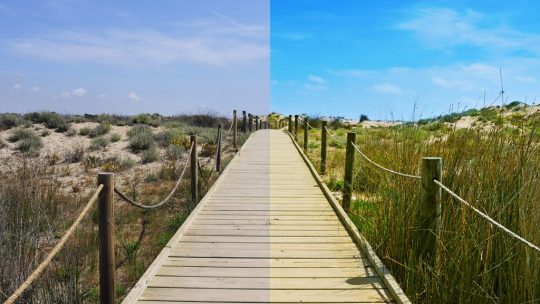
Figure 1: Saturation in boardwalk photo, https://www.adorama.com/alc/0008627/article/100-in-100-Dont-be-a-super-soaker-saturater
In photography, to saturate an image is to edit it so that all of the visible colors are intensified against the white; the right side of Figure 1 is saturated to bring out the vibrancy in the greens and blues. The lowest form of saturation is greyscale, where the photo loses all colors and becomes simple variations of white and blacks. I kept thinking of this term, saturation, while doing the readings for this week. It feels like humanity has taken hold of the saturation scale in Adobe Photoshop and is steadily turning the world greyer. This week’s post looks at the causes of biodiversity loss and extinction, particularly in chapters 9 and 10 of the textbook.
One of the first times I really felt a deep empathy for the environment was when I must have been about eight years old, and I was flipping through a magazine in my dad’s dental office. On the cover there was a polar bear, and on the inside there must have been an editor’s note that stressed how sad and absurd it was that the editor’s children might live to see a world where polar bears go extinct. It completely blew my mind. Polar bears going extinct?! But they’re such iconic animals!
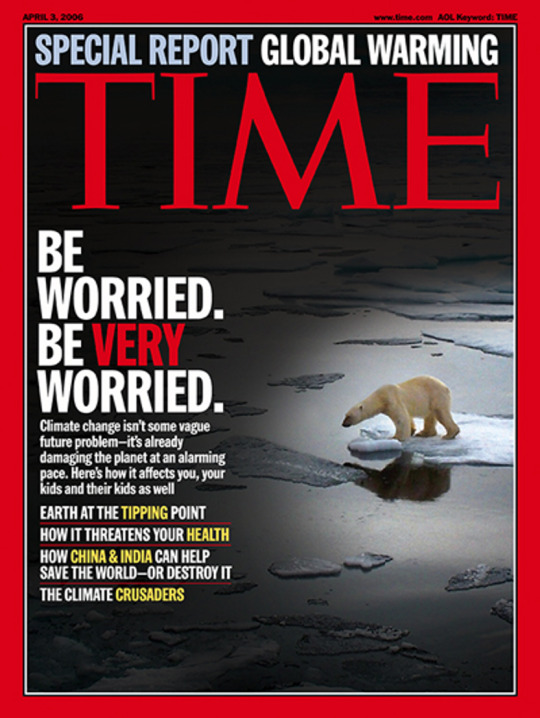
Figure 2: Polar Bear on Time Magazine, 2006. Not sure if this was the exact magazine I was flipping through, but it carries the same energy. http://content.time.com/time/covers/0,16641,20060403,00.html
What I didn’t realize then was that every twenty-four hours, between 150-200 species of plant, insect, bird, and mammal go extinct.[1] And according to Miller and Simmons’ text, “20-50% [is the] percentage of the earth’s known species that could disappear this century primarily because of human activities.”[2] The guilt on the shoulders of humankind should be there, but it is not. There is hardly any action being taken to preserve these species, or at least ease their suffering—and hardly any action being done to do the same for our human sisters and brothers.
“Given the pace and scale of change, we can no longer exclude the possibility of reaching critical tipping points that could abruptly and irreversibly change living conditions on Earth.” [3]This quote comes from the World Wildlife Populations Down 50% in Last 40 Years video, which explains just what the title says. There are critical tipping points that are coming closer and closer to being reached each day, and very little being done to reduce the strain of these.
One way to remember the reasons that are causing this biodiversity loss is through HIPPCO: Habitat destruction, degradation, and fragmentation; Invasive (nonnative) species; Population growth and increasing use of resources; Pollution; Climate change; and Overexploitation. Habitat destruction is at this time the most common damaging action being taken, and is a difficult one to stop. It can be difficult to realize too; people in industrialized parts of the United States took great pity on the wildfires being burned in the Amazon Rainforest in late 2019, but were hypocritical to the land that was destroyed so that their city or suburb could be built.
This also reminds me of an interaction I saw on Instagram the other day. There was a post by National Geographic on how salmon are being overfished and losing their wild habitat. One of the top comments stated something along the lines of, “this is why we need to farm salmon! Stop fishing in the wild, it’s the only way to protect them!” And it made me think, because if the problem is that isolated—salmon in the wild are disappearing, so just eat the ones that are farmed—then that would work, maybe. But the issue with salmon, or any species, is that they do not exist in a vacuum. They are an integral part of ecosystems in their natural habitats; farming salmon would eliminate a lot of the benefits that salmon have in the wild.
I was just having a discussion with my brother about this too, and we started making a list of things: what if cows were wild? Would they look the same or had hundreds of years of domestication made them softer and bigger, as chickens have become? Farms make evolution work differently.
As do zoos. Is there any real chance of zoos integrating animals back into the wild? I support animal education, and I get that it’s easier to study animals in zoos than in the wild sometimes.

Figure 3: A photo I took in February, 2019 of the South African Lion and Safari Park website where they acknowledge that they do not feel comfortable with their own lion-petting exhibits but continue to have them for economic purposes. The website has since been renovated and this page was completely removed.
But zoos tend to really get me questioning their ethics. Are they necessary for people to understand why it’s necessary to protect them, or is watching high quality documentaries enough to give humans a change of heart? I had a huge fallout with some friends of mine while we were studying abroad in South Africa because they went to a Lion Park where lions are bred and adults are euthanized. I heard lots of, “but you connect with the animals! You learn to respect them for their conservation! They do scientific research there!” And then the question is, how different is using horses for entertainment? Is it not practically the same as breeding lions for human entertainment? This isn’t the section of the course dedicated to philosophy, but the unanswered questions remain, bring the choice back to whether we will keep the turning the world grey or work on brightening its diversity.
The Critical Thinking Question #5 on page 218 is a tough one: what would you do if a wild boar invaded and tore up your yard or garden?
Currently my dad is having an issue where these strange moth-type bugs build cocoons on the pine trees separating our house from our neighbors. They’re killing the pine trees, because when they make their cocoons, they eat the needles. My dad asked me, as an environmental studies major, what the best option would be: let the bugs take over the trees and once they turn brown, cut them down? Or use pesticides to kill the trees?
Critical Thinking Question # 5 on page 250 asks: Are you in favor of establishing more wilderness areas in the United States?
To that I say: YES TO MORE WILDERNESS AREAS!!!! More old growth forests means more biodiversity! Any disadvantages would just be hidden advantages; for example, less room for suburban sprawl would give more space for the earth to heal.Less private space allows for more public space, which can be used by humans, vegetations, and wildlife.
WC:1189
Question: It is interesting too, that some species are considered accidentally introduced/invasive. Are humans accidentally introduced to places, or do we make possible the ability to sustain life on any corner of the earth because we were designed to do that?
Blog 8: Eat or Be Eaten.
Aquatic Biodiversity Loss and Extinction
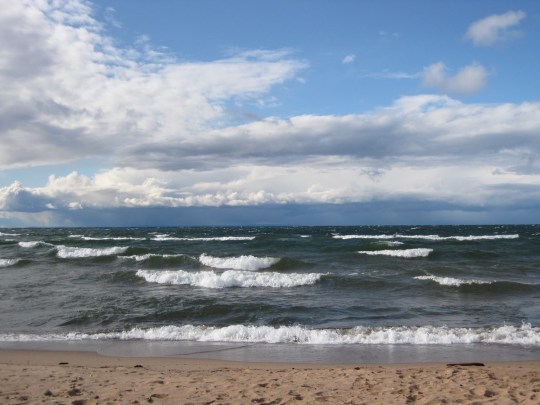
Figure 1: Lake Erie, 2015, https://www.nps.gov/piro/learn/nature/images/Waves-on-shore_1.jpg?maxwidth=1200&autorotate=false
Unless you have seen one of the Great Lakes with your own eyes, you cannot fathom what they are really like: vast, powerful bodies of water, with big waves and long stretches of sandy beaches; comparable to an ocean. I grew up living about a block away from Lake Erie, and when I was younger, I really hated my hometown. I wanted to live in a big city. My parents countered my arguments by emphasising how lucky we were to live in the Great Lakes Basin. It wasn’t until I attended a March for Science that I realised how important it was to protect the lakes — see me pictured below with my generic sign, and my friend Max holding a sign that my mom crafted; she’s the one taking the photo.
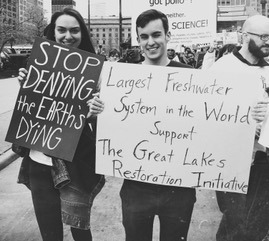
Figure 2: Cleveland’s March for Science Protest, 2017. Photo by author.
Part of my love of the Great Lakes, and of open bodies of water in general, comes from me living so close to them. But as Sylvia Earle is quoted in the beginning of chapter 12, “With every drop of water you drink, with every breath you take, you are connected to the sea, no matter where on Earth you live” (253).[1] Even if you live in a desert, every decision you make can in some way affect aquatic ecosystem services. Take, for example, the Great Pacific Garbage Patch.
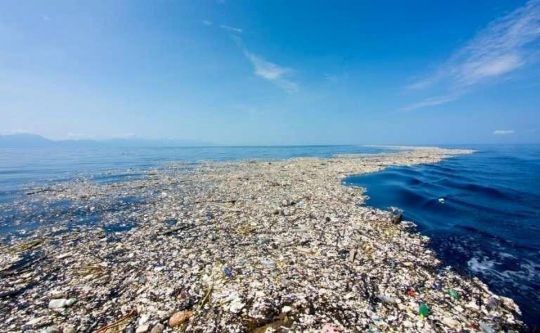
Figure 3: Eastern Great Pacific Garbage Patch, 2019.
https://www.forbes.com/sites/scottsnowden/2019/05/30/300-mile-swim-through-the-great-pacific-garbage-patch-will-collect-data-on-plastic-pollution/#4b2a7f36489f
There are actually two large garbage patches with some connecting debris in-between them; the greater of these patches is just off the coast of California, and is about 600,000 square miles, and in some areas, several feet deep. It is an island floating on the surface of the water, made up of plastics and microplastics. Because plastic is not biodegradable, the Garbage Patch continues to grow, and many animals, such as the albatross pictured below, die due to ingestion of these plastics, which Chris Jordan documents hauntingly well in the film Albatross.[2]

Figure 4: Albatross Bodies with Plastic, 2018,
https://www.albatrossthefilm.com/ourstory
One thing that I think could have been better written about in this chapter is water distribution. I stumbled through this very briefly in my presentation while explaining biophilia and the damaging effects of trying to make Las Vegas into an oasis in the desert. I understand that this chapter is focused more on the biodiversity of aquatic ecosystems, but I still think that concept 11.5 of this chapter could go more in depth with the ownership rights of water sources, or perhaps the section on the Great Lakes in the previous section could explain how although the Great Lakes are the largest collective body of freshwater in the world, water diversions are pretty much limited to regions within the Great Lakes Basin, and why it is important that it stays that way.
Critical Thinking Question #2, p. 280:
Three Greatest Threats to Aquatic Biodiversity
1. Ocean Acidification
2. Plastic Pollution
3. Coastal Wetland and Watershed Protection
4. Overfishing (if there are fish left after the above 3 are increased!)
The list above is my answer to the Critical Thinking Question for this chapter. All of them are caused by humans on the land. The greatest threat according to me is that of ocean acidification, or the increasing amounts of heat and acidity in the oceans. This stems from increased Co2 in the atmosphere. One of the main factors contributing to that, is animal agriculture.
Soil, Agriculture, and Food

Figure 5: You Can Smell the Methane in This Photo, 2014
https://www.wilderutopia.com/health/cowspiracy-animal-agriculture-despoils-land-water-and-climate/
Chapter 12 in the textbook discusses the effect of food production on the environment. I act like I know a lot about this when people ask me why I’m a vegetarian, but this chapter was full of great information and details that I didn’t fully understand until now.
The issue with animal agriculture is not only that Co2 is basted into the atmosphere through gasses released form the animals and humans which eat them, and the clearing of land for the animals. With the depletion of biodiversity to allow animals grazing land, vital natural habitats for other species are lost, as shown in George Monbiot’s brief video on rewilding the countryside and rural areas.[3]
Truthfully, I expected the chapter to be much more focused on animal agriculture alone. But other forms of farming are nearly as bad, as pictured below.
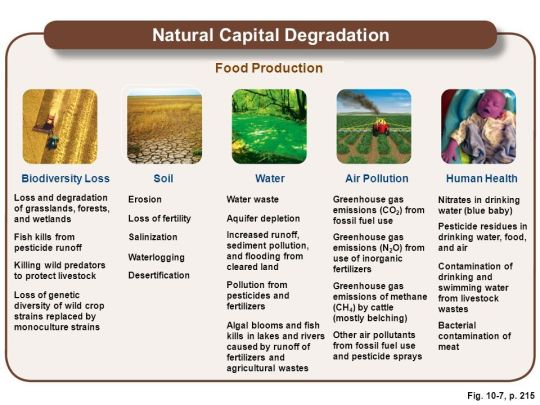
Figure 6: Effects of Food Production of Any Sort
https://slideplayer.com/slide/6187595/
I’m also glad that the chapter covered a comparison of overnutrition and malnutrition. I found the quote: “We live in a world where, according to the WHO, about 795 million people face health problems because they do not get enough nutritious food to eat and at least another 2.1 billion (29% of the human population) have health problems stemming largely from eating too much sugar, fat, and salt.”[4] The greed of modern civilization never ceases to amaze me.
Critical Thinking Question #1 p. 320

Figure 7: Vertical Harvest of Jackson Hole, 2013.
https://www.kickstarter.com/projects/2056017617/vertical-harvest-of-jh-a-growing-system-for-change
If I were a member of Growing Power Inc. and in charge of turning an abandoned shopping center into an organic farm, I would begin by getting a perfect team together; potentially including some of the students in this class (networking!). I’d do my best to dismantle the concrete and debris of the shopping center, and reuse whatever I was able to on the spot. As it is in the Case Study, my farm would be powered partly by solar electricity and solar hot water systems, and would be structured like a green house to keep the produce supported year round. As it is in Jackson Hole’s Vertical Harvest organic urban farm, my employee positions would first be open to disabled peoples who are working on communication skills, training in this center for jobs elsewhere.[5] We would be deeply integrated into the community, selling our produce locally and donating to food banks and soup kitchens whenever possible. That sounds too good to be true, but we’ll leave it at that.
Question, and I think about this every day: which is better for the environment, to be vegan and avoid animal products entirely but eat non-local tofu or other forms of meatless protein; or to eat only locally sourced food which would make animal products more of a staple to the diet?
WC: 1156
[1] Miller, G. Tyler, and Scott E. Spoolman. Living in the Environment. Chapter 11: Sustaining Aquatic Biodiversity and Ecosystem Services. 19th ed. Boston, MA: Engage Learning, 2020.
[2] Jordan, Chris. Albatross. https://www.albatrossthefilm.com
[3] Smith, Peter. “George Monbiot on reqilding countryside and rural areas” YouTube, 2016. https://www.youtube.com/watch?v=K1KW-0YbO3Q
[4] Miller, G. Tyler, and Scott E. Spoolman. Living in the Environment. Chapter 12: Food Production and the Environment, p. 286. 19th ed. Boston, MA: Engage Learning, 2020.
[5] “Vertical Harvest Jackson Hole,” Vertical Harvest, https://www.verticalharvestjackson.com/our-mission.
Blog 9: Fight the System by Appreciating Soil and Supporting Local Farmers !
Symphonies of the Soil

Figure 1: Cover Artwork, 2012, https://www.imdb.com/title/tt2229397/
When I began watching this documentary, I braced myself for what I thought was going to be a long, boring hour-and-a-half. But by the end of it, I think it may have changed the trajectory of my summer plans.
The first half of the documentary is an almost meditative description of different types of soils found across planet earth, backed by an orchestral score. Ironically, one of the first phrases of the narrator is: “most of the planet is non-living.”[1]And it is. As my sister pointed out, even humans are mostly CHON: carbon, hydrogen, oxygen, and nitrogen. Yet plots of land are not 100% soil; half of it is the compounds that make up soil, and half of it consists of spaces for air, water, and microorganisms which use soil to survive.
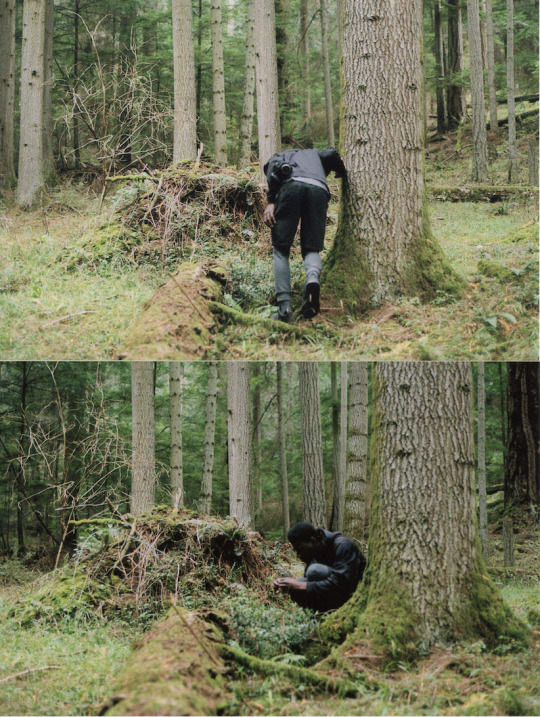
Figure 2: Andy Foraging for Mushrooms in Washington, 2019, photo by author.
This point leads to another: you cannot grow good produce in a void. If you were to strip a type of soil down to its purest form and attempt at planting anything in it, it likely would not be successful. This seems to be the thesis of the second half of the documentary: farmers need to feed soil the natural ingredients it needs to be nutritional.
As I don’t have a very strong science background, some of this went over my head, such as the part about the lupines and nitrogen fixation. This summer, as long as the pandemic settles down, I hope to get an internship or job working in permaculture or vertical harvesting. It’s very odd to me that I can talk so much about the environment but know so little about it in a physical way. Although I try to shop mostly locally or from farmers markets, the development I grew up in didn’t allow gardens aside from flower beds, so I have had very little connection to soil or the ground I live on.
A critique I have of this film is that they paid very little attention to indigenous practices of cultivating soil, or hunter-gatherer ideas. They looked at how the harmful processes began, with civilizations in Europe flattening out the hillsides and beginning monocrop farming during the agricultural revolution, and they did discuss the Law of Return, but I thought there might be more references with how the soil had been used in previous human populations, and perhaps a discussion on primitivism. The discussion that was had in the film was more focused on finding a structured form of rewilding agriculturally, which I support, but still I thought the film could show the other side, and give more credit to the indigenous groups that have been pushing for this rewinding for centuries.
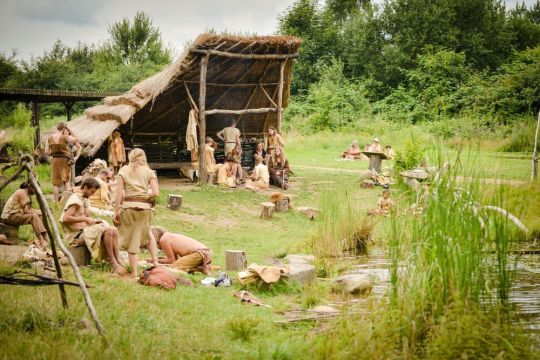
Figure 3: Stone Age Reenactment Group, http://www.jutulskinn.no/stone-age-gathering.
No matter how far you think society should dive into with a return to primitivism, the message of this video is clear: we can do a better job at how we farm, in order to produce healthier more sustainable products. It feels as though this shouldn’t be too difficult—but with the rigid constraints set forth by the corporations involved in the agricultural industry, farmers have very little say in how their crops get produced, and animals have become far removed from from the agricultural process, removing a great source of natural fertilizer as well. The next film explains that a bit more.
Food, Inc.

Figure 4: Food, Inc. Cover Image, 2008, https://www.imdb.com/title/tt1286537/mediaviewer/rm3514966016.
Food, Inc. uses various segments to explain the systems put in place to produce food, and how rigid those constraints are within the law-and-order system of the United States of America. These segments range from showing statistics, interviews, and video clips of what the world of agriculture is really like.
I found the Polyface Farms clips to be fascinating, because it was so difficult to watch and listen to, but was still the best possible scenario for meat farming. The cattle fertilize and mow the variety of greens they eat; there are no shipments of corn that have to be made. As Joel says, “it’s all real solar dollars….we’re every bit as efficient, especially if you plug in all of the inefficiencies of the industrial system.” [2]
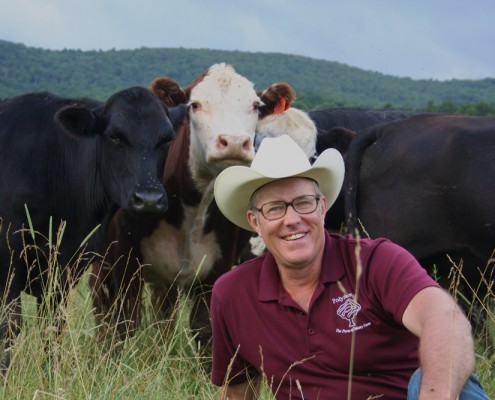
Figure 5: Joel at Polyface Farms, http://www.temeats.com/polyface-farms/.
I think this will be the hardest connection for people to make, especially because we need food to sustain ourselves. Someone can be addicted to nicotine and cut it out of their lives, or can choose to avoid it altogether. But they cannot simply ignore food. People can ignore bad food, but the temptation is always lingering as a possibility, and if you grew up like I did—eating processed foods for breakfast, lunch, and dinner until I was about sixteen and realized I needed to be healthier—breaking away from those habits can feel like the single most challenging thing to accomplish. And when fast food is the only option due to income levels, the cycle gets even more challenging to break.

Figure 6: Elk in Wyoming, https://content.osgnetworks.tv/petersenshunting/content/photos/bull-elk-bugling.jpg
I am reminded of an argument that put me on bad terms with my boss at my summer job as a waitress at a guest ranch near Jackson, Wyoming. Elk lived in the meadows just outside the property and were hunted and sold locally. One of our most popular items on the menu was elk tenderloin, and once I had a guest ask how local the elk we served was, a reasonable assumption as our website says that our kitchen sources locally and is as sustainable as possible, even though the menu does not specify what is or is not local. Upon speaking with the head chef I learned that the elk was actually shipped in, frozen, from Austria. The more getting-into-everybody-else’s-business that I did, the more I realized that the only ingredients we used that weren’t shipped in from Sysco were a weak amount of herbs from the farmers market. That guest was from Philadelphia and could have had fresher elk had he shipped it from Austria to Pennsylvania rather than Austria to Utah to Wyoming.
Along with that, our menu was incredibly meat-and-potatoes based, following exactly the prediction that humans are hard-wired to crave salt, fat, and sugar.
Something my mom makes fun of me for saying all the time is “it’s supply and demand!” as if all the problems in the world could be that simple. But in truth, they can be. And I hope that just as my generation has severely damaged the tobacco industry, the next generation can put an end to big corporations controlling the food industry, so that 30% of the United States’ land base will not be corn, and the choice between medication or buying vegetables will be unfathomable, and local food companies will overrule the 4 major meat companies in charge now.
A critique I have of Food, Inc. is that there is very little said about the dairy and fishing industries. I felt that there could have been an additional segment on those in the film—perhaps they aren’t as bad as the meat and corn industries, but I do not feel as though they are righteous enough to be counted out of this conversation.
I also am a bit confused by the Monsanto segment and hope to discuss that in our class time.
Question: Food, Inc. is very focused on the United States of America. What are food systems like in other parts of the world? Is there a correlation between colonized places having more fast-food?
WC: 1257
[1] Garcia, Deborah Koons, director. Symphony of the Soil. YouTube, 2012, www.youtube.com/watch?v=tDZVKMe2FTg.
[2] Kenner, Robert, et al. Food, Inc. 2008. https://www.youtube.com/watch?v=smk2xq2l3Ig
Blog 10: The Health of the Environment, The Health of Humans
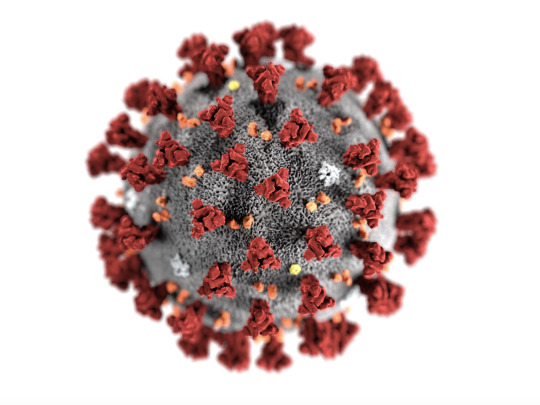
Figure 1, COVID-19 illustration, https://www.statnews.com/2020/02/11/disease-caused-by-the-novel-coronavirus-has-name-covid-19/
This week’s focus is on hazards and waste on human health and the environment. Chapter 17 in the textbook begins with a discussion on diseases stimulated from biological and chemical hazards and how these can be linked with environmental causes. The chapter ends with a discussion on risks, and how decision making can affect the world around us.
One of the most frustrating, common, and powerful diseases is cancer. Cancer’s direct cause in an individual is unknown. The title of the article “Breast Cancer: prevention or Cure? Why Is Breast Cancer Awareness/Cure Run By Major Chemical Companies?” gives good insight to the confusion around cancer research. The article goes on to explain the intricacies behind cancer research and bring to light the distrust that many people rightfully have towards corporations that are in control of cancer funding and research. Again, I see these problems tying so deeply into capitalism: individuals finding ways for their own selves to be as successful as possible without working towards the greater good.
Ethics always comes in to play and is very noticeable in this chapter. If malaria is such a murderous disease, and malaria is spread by mosquitoes, how bad would it be to just completely wipe out the mosquito population? I admit that I will appreciate any bug that lands on me, or gently flick them off, unless they are a mosquito. I do not like the inconvenience of mosquito bites, and killing mosquitoes gives me a weird sort of satisfaction that I could not achieve from the death of any other living being. In my biology class last semester, we looked at a case study of several scientists who were considering wiping out mosquitoes entirely in areas of the world susceptible to malaria. After long debates, no conclusion was reached. It feels wrong to eliminate a species that is annoying to us—if this is possible, then who’s going to stop the wolves in the western United States from eating cattle on ranches encroaching on their wild territory? At the same time, this could be a heroic achievement and an extreme stress-reliever for humankind.
These things seem like such simple solutions: page 455 of the textbook lists some ways to avoid exposure to hormone disrupters. Yet the article of the man who eliminated plastic from his life yet still got microplastics from his milk which was stored in a mason jar but filtered through a plastic lining proves that even when trying desperately to follow that advice, it is still just about impossible to be rid of them completely.
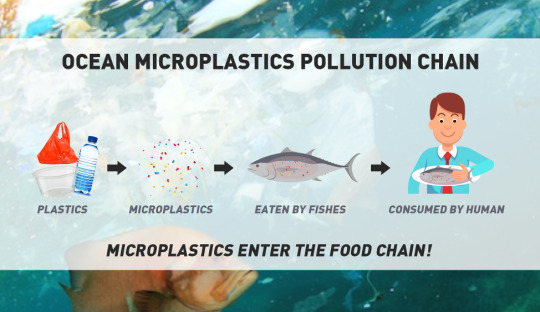
Figure 2, Microplastics Diagram, https://www.java-biocolloid.com/event/the-threads-of-microplastics-in-food-8721
I recently read the chapter “The Indian Healer” out of The Indian Giver, a book by Jack Weatherford in which he goes through the various ways that Native American peoples have contributed to modern medical technology or found the basis for medications. Native American practices of healing should be can be used to encourage well-being in medical practices, so as to put into action ways that advance views on the interconnectedness of community, the environment, and medicine overall.
I can’t help but think of what it felt to be alive before the industrial period began. I generally do feel better when I have spent some time in fresh air—but any fresh air in this day and age still has toxins in and around it, and no food nor water is completely free of microplastics or
A quick critique I have about all the extra informational videos and articles is that although they are very interesting, they are quite outdated. In other classes I am not allowed to cite articles older than five years old, and all of these are from the mid 2000s. I understand needing to learn the history of how we perceive chemicals in the body, but there was no range for that either. I’m curious as to what research has been put out within the last few years—or months.
CTQ #7 on p. 468 asks to name some risks that I face and how to eliminate or reduce those risks. This causes me to check my privilege once again; even when I come across pollution, I will likely have access to the best healthcare to heal me from whatever risks may concern me. There are risks that I can avoid, but that I still choose; I have chosen to live in Manhattan, with all its pollution, instead of living in a pristine area out west. Yet perhaps my education in New York will allow me to strengthen my ties with academia so that I can preserve those lands out west.
Solid and Hazardous Waste
I also recently read Waste Seige: the Life of Infrastructure in Palestine by Sophia Stamatopoulou-Robbins, who’s covering the discussions behind environmental, economic, and social issues that in occupied Palestine. Through illegal occupation, Israeli settlers are forcing neo-capitalist practices in the area, leading to more forced consumption, leading to more waste in an area that cannot contain it, and does not have the finances nor the leadership to create more sustainable waste options, such as those shown in the textbook. Palestine has become a literal dumpsite, and the effects of the toxins in the various wastes infiltrating the area is murderous. There is an ironic “Polluter Pays Principle” in use, where the governmental organizations have Palestinians pay higher taxes because technically they are the ones who are polluting—it is their sewer systems overflowing, their land that has the burning dump sites, and their people who are being cheap, non-sustainable products. Ironically, the sewers are flooding because Israeli-settler waste flows directly into them as well; landfills in that region are almost all located in designated Palestinian areas; and the suffocation of the economic process in Palestine keeps their people from having any upward mobility.
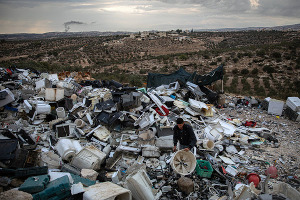
Figure 3, Landfill in Palestine, https://www.haaretz.com/israel-news/.premium.MAGAZINE-israel-s-solution-for-expelled-bedouin-between-garbage-and-junkyard-1.6158225
CTQ #1 p. 600: List three products you use and make them cradle-to-cradle.
The past two years I have begun having an immense feeling of guilt if I purchase something that isn’t made sustainably, or that isn’t able to be recycled or composted. When I need to buy something new (key word: need), I spend a lot of time looking into which company I can trust. I get most of my products from Package Free Shop. But as I keep saying, it goes back to economics. I’m sure anyone who uses their shampoo and conditioner bars and natural face oils would prefer it over whatever drugstore brand they use currently, but that price difference is what makes it so unreachable. To circle back, this is highlighted in Chapter 17’s discussion on HIV: lifesaving drugs are expensive, and simply cost too much to be used widely both in less-developed countries and in impoverished areas of industrialized countries.
Question: With marijuana becoming a much more common recreational and medicinal drug, I would have appreciated an unbiased discussion of it in this chapter, instead of it being left out completely. Does smoking marijuana affect your lungs as badly as smoking tobacco? Are there any studies being done on dab pens, which include THC but don’t include nicotine like traditional vape pens?
WC: 1105
Blog 11: Water (cont.)
Had I been patient with blog 8, I may have realized that there would be a whole other blog dedicated to water, filling in the gaps that I felt were left out in the previous readings—chapter 20 really digs into the inefficiencies of Ohio water treatment. This is that blog post, looking at chapters 13 and 20 in the textbook.[4]

Figure 1. Water Dispersal, https://en.wikipedia.org/wiki/Water_resources
Chapter 13: Water Resources
Water is stored in many ways in the earth’s surface, but only 0.024% of the earth’s water is readily available as a liquid freshwater. Due to climate change, areas that are dry are becoming drier, and areas that are oversaturated are becoming wetter and with saltwater, not freshwater. With that small percentage of water that is usable to humans, about 70% is used to irrigate cropland and raise livestock.
Industrialized nations in particular treat water as if it is free; Miller and Spoolman note that “we have no substitute for this vital form of natural capital” (325). Things that don’t seem to be made of water need large amounts of it in order to be produced, such as blue jeans and lettuce; producing a quarter-pound hamburger takes about 2,400 liters of freshwater. “About 66% of the freshwater used in the world and about 50% of the freshwater used in the United States is lost through evaporations, leaks, and inefficient use” (342). Water really is our most necessary resource, and we absolutely take it for granted.
The United States has lots of freshwater resources, particularly in the eastern states. The book reads, “the United States has more than enough renewable freshwater to meet its needs. However, it is unevenly distributed and much of it is contaminated by agricultural and industrial practices” (329). Freshwater shortages are becoming more common and will continue to expand as climate change increases. Aquifers are losing their water faster than the rain is refilling them—in some parts of the United States, four times as fast—and much of this water being taken out is going to waste. There are other frightening results that come from too much groundwater being pulled out of the earth, such as sinkholes, as pictured in Figure 2.

Figure 2. Sinkhole in Guatemala City, 2007. https://www.businessinsider.com/giant-sinkhole-photos-2014-9
There is an option of tapping deep aquifers that lie beneath the surface of the ocean, but this is dangerous in that they are nonrenewable on a human timeline, little is known about what effects doing this may have, no international treaties govern these areas yet, the costs are unknown, and the water is likely still contaminated with some salt, arsenic, and uranium.
Dams are also not an ideal way to increase water supplies, because even though they help humans in many ways, they can destroy the natural environment in many ways, which in turn brings destruction to humans after a matter of time. Desalination is another option, albeit a costly and perhaps inefficient one, though more research is being done in the search to find better desalination technology.
The 4 R’s of recycling (refuse, reduce, reuse, recycle) may be the best way to work with water. Refusing unnecessary amounts of water, and reducing one’s usage of necessary water, are two prime first steps to take when trying to heal water issues. Part of what will make this easier for people to remember to follow is if water is treated by society as a necessity, through higher prices of freshwater (and perhaps a Universal Basic Income – style user pays approach) and redirecting government subsidies to being more efficient. Simple household changes, such as installing low-flow toilets, fixing leaks as soon as they are noticed, and redesigning lawns and outdoor spaces with vegetation that suits the ecoregion can also help limit the amount of freshwater wasted. Vaster options can include incorporating infrastructures in communities that reuse greywater in areas that are able.
Water has no substitute. Sure, you can drink LaCroix or Coke Zero and treat that as your liquid intake for the day, but freshwater is at the base of those items. Without some form of h2o in our systems, humans would not survive for more than a few days.
Chapter 20: Water Pollution
The previous chapter had its focus on freshwater, and how to be efficient with it. This one focuses on what happens if that freshwater gets polluted. In some parts of the world, mercury, pathogens, metals, and other nutrients can kill people drinking the water if it is not treated properly. In some areas, this does not directly affect humans intake, but can affect humans lives in other ways—for example, all of northeast Ohio becoming a laughing stock when the Cuyahoga River caught on fire in the late 1960’s (see Figure 3).
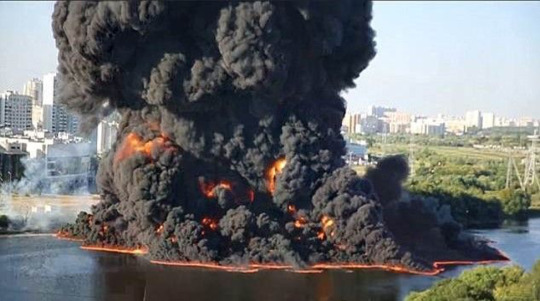
Figure 3, Cuyahoga River fire recolored, June 1969. https://1960sdaysofrage.wordpress.com/2019/03/18/burn-on-big-river-cuyahoga-river-fires/
But in the textbook, Miller and Spoolman start this discussion of as saying that the Cuyahoga River fires were a success story. I rode my bike by the Cuyahoga River just the other day and it was not ablaze—there were fishermen and ducks in it. Still, most of the world’s major riverways are heavily polluted, with “80-90% of the raw sewage in most cities in less developed countries [is] discharged directly into waterways” (548). Yet there is hope that these rivers can heal, though it will take a tremendous amount of strength from the humans who have caused this incredible pollution in the first place.
Balance is another important factor into keeping water clean. No water, not even the “clean” water humans drink, is pure h20—that would kill us. We need small traces of other elements in it too. Too many nutrients, though, can lead to eutrophication, which is when a shallow body of water has too many nutrients, causing dense growths of organisms which decompose and suffocate the body of water, giving it a greenish-teal color.
Question: Why are some mountain lakes so brightly colored? Does it have to do with eutrophication, even if they are pristine?
WC: 1112
Blog 12: Future, No Future

Figure 1: Protestors rally against pipelines being put into Wet’suwet’en land in Canada
First off, I would like to disagree with Justin Trudeau’s statement made at the Houston Energy Conference in 2017 where he says that “No country would find 173 billion barrels of oil in the ground and just leave them there.” I would like to believe that I, and many people with unselfish morals dedicating their lives to environmental justice, would let those oil barrels STAY IN THE GROUND.
I was surprised that Trudeau was the one to say it, as when I was younger, I thought he could do no evil; I was quite a little liberal. But now I see his desire for economic greed showing through his attempted democracy, just as I thought the Paris Climate Agreement was exactly what the world needed, and now see that there’s a lot of flimsy rhetoric in there. But we’ll get to that in a minute. First, the reading:
Chapter eleven of Simon Lewis and Mark Maslin’s The Human Planet: How We Created the Anthropocenetells how there are three possible future for the world: continued consumer capitalist development, collapse, or a new mode of living. [5]
Continue

Figure 2: Consumerism, http://links.org.au/node/1972
I think it’s interesting that they even gave continued consumer capitalist development a chance—I feel as though they could have just grouped that with collapse. I recognize that not many people (ie. My family who I am quarantined with) think the way I do, so I am glad they gave the explanation. Business as usual cannot continue. We are heading for collapse.
I suppose in some kind of sense, you could say that it can continue. But that’s because what’s continuing isn’t really capitalism in the first place. The small changes are already being had. For example, our right-wing president is dishing out monetary stimulus checks to bolster the economy, which smells a lot like socialism to me (delicious).
Lewis and Maslin explain our current economic system as being driven by positive feedback loops which end in fundamental changes. The factors which underlid all human societies are changing faster and faster as time moves onwards—it is true exponential growth. It is consumers acting as though we have infinite resources even while living on a finite planet. It is contradictory. But even in it’s core, our current system is one of change.
Perhaps the change requires all cars to be electric, but the increase in demand for electric cars requires an increase in demand for the lithium mined in Bolivia. Maybe there is no realistic, futuristic plan to put in place that will efficiently and sustainably save the world. Maybe I just need to read up more on this. Lewis and Maslin do offer some good suggestions, though, including Universal Basic Income and Half-Earth.
A New Way of Life?

Figure 3: Half-Earth website screenshot, https://www.half-earthproject.org
Universal Basic Income (UBI) and the Half-Planet theory are the two most clearly stated pathways for success of our planet that we have studied thus far.
UBI: I know a lot of professors don’t like to talk about their politics, but I was trying to figure out where yours lie as someone who knows so much about the interweaving’s of politics and the environment. A few months ago you dropped that you were a big proponent of UBI, and I thought, “aha! so Andrew Yang is the one who will save the environment!” But my impression of Yang’s UBI felt more focused on Artificial intelligence—I really just didn’t know a lot about UBI in general. (side note: I am REALLY excited for it to be summer so I can stop having deadlines and start just immersing myself in the random topics I want to learn more about. This course gave me a lotta suggestions.) After reading about it in this chapter, I think that UBI is really promising. Lewis and Maslin state that, “[UBI] breaks the link between work and consumption; we could work less and consume less and still meet our needs…those working in the fossil fuel industry would have the security of income to retrain” (406). This sounds incredibly promising, but there are still questions involving culture (some people feel more “manly” working in a coal mine) and how this would play out with refugees and non-citizens residing in the United States, etc. Still, I think a solid attempt at integrating this into our economy would help the world in lots of ways.
Half Earth: I am very interested in the idea of giving half the earth to other species, and perhaps indigenous groups as well. Again, I look at the suburbs and think of how seemingly easy it would be to develop rewilding techniques. All it would take is one popular suburban mom changing her front lawn from monoculture bluegrass to being a large garden—or whatever a local environmental rewilding consultant would suggest—and the rest of the neighborhood would follow suit. Half-Earth may seem like an enormous task to take on, but I genuinely have faith that it is possible.
Collapse
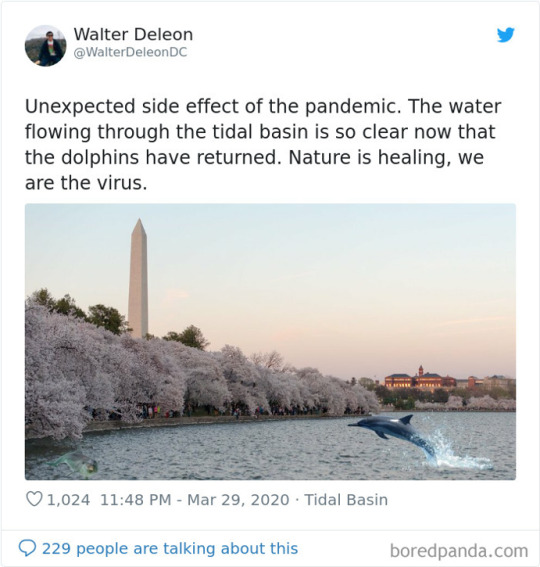
Figure 4: Quarantine Meme That My Mom Thought Was Real, https://www.boredpanda.com/nature-healing-quarantine-jokes/?utm_source=google&utm_medium=organic&utm_campaign=organic
As an environmental studies and anthropology double-major, people would ask me where those two overlap. I even felt that I was choosing two very different subjects because I was so scatter brained—I’d study a little about the environment, a little about humans, and figure out what I was going to do with that somewhere along the way. I let myself feel belittled for choosing two of the “easiest” subjects—no intense economics, no organic chemistry to work through. Just a lot of thinking too much about things which some people may consider completely irrelevant, a task which I am very good at. So it made me feel a lot better when, I believe it was you Dr. Kindervater, who said: “These two scientists think there is time for economic and political changes to save human kind. Culturally, though, do we believe it?”
For a long time I really thought that collapse was the only path our planet was headed towards—that Jane Goodall was bullshitting us all with her Reasons For Hope, and that if Bernie Sanders didn’t become president and begin balancing out the wealth gap and making changes to environmental legislation, then we might as well all be dead now and let whatever remaining species reclaim the earth before we make them go extinct too. I guess, if you’re someone who prefers life over death, (and I suppose we are all those types of people as even if we want to kill ourselves, we haven’t done it yet!) the we might as well have hope for the future, and continue working towards the new path.
“With great power comes great responsibility” is a quote from Uncle Ben in the Spiderman series, which Peter Parker/Spiderman keeps close to his heart as he begins to realize his powers, and is constantly questioned with the choice to use them selfishly or for the greater good. With increased technology, humankind collectively has the power to transform the earth or destroy it. I hope that soon we recognize what is at stake with our planet, and learn how to efficiently reduce the destruction being caused. It might not bring dolphins into the heat ponds of Washington D.C., but it would certainly allow for a lot of other miracles to happen.
Question: My concern with UBI is, how can you make sure that people aren’t spending it irresponsibly? Would it be better to just raise the minimum wage, or expand the amount available for people to get food stamps and free healthcare? Would UBI allow people to get their basic needs met, or would it provide for spending money on sustainable/fair trade products?
WC: 1251
[1] Vidal, John. “UN Environment Program: 200 Species Go Extinct Every Day, Unlike Anything Since Dinosaurs Disappeared 65 Million Years Ago,” Huffpost May 2011. https://www.huffpost.com/entry/un-environment-programme-_n_684562
[2] Miller, G. Tyler, and Scott E. Spoolman. Living in the Environment. Chapter 23: Economics, Environment, and Sustainability. 19th ed. Boston, MA: Engage Learning, 2020.
[3] https://www.dailymotion.com/video/x26ybub
[4] Miller, G. Tyler, and Scott Spoolman. Living in the Environment . 19th ed. S.l.: Cengage Learning, 2018.
[5] Lewis, Simon L., and Mark A. Maslin. “Chapter 11: Can Homo Dominates Become Wise?” The Human Planet: How We Created the Anthropocene, Yale University Press, pp. 367–416.
0 notes